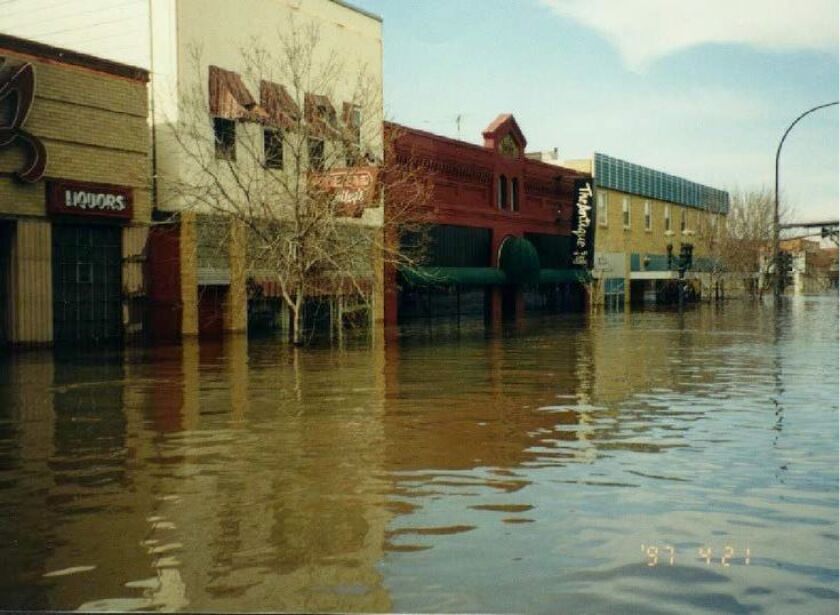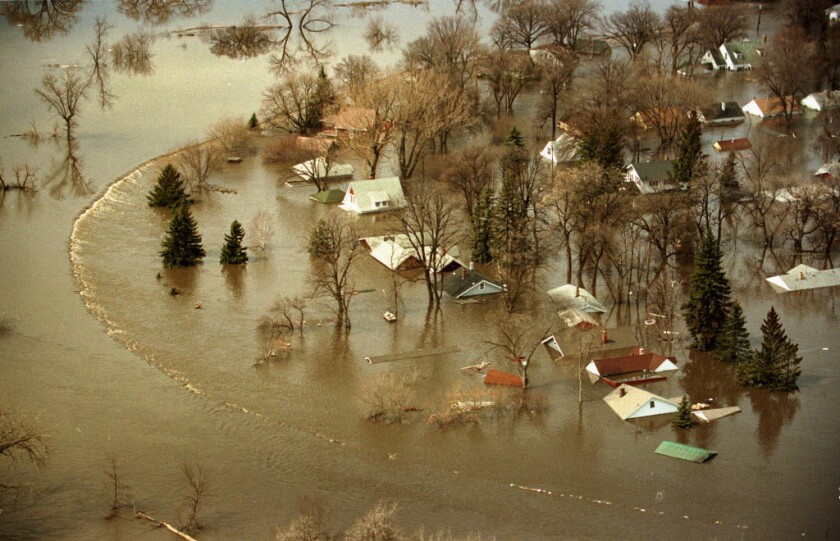We took a break on the fifth day after the storm. Other obligations took us out of town, so our clean-up had a brief hiatus.
Saturday morning we woke to a huge fallen oak in our front yard and about 50 more fallen or badly damaged trees on the property. Little by little we learned of the extent of the damage in the Bemidji area.
ADVERTISEMENT
In our yard, the wind had been indiscriminate as to the kinds of trees but discerning in selecting the fullest, most mature ones — old friends and stately shade-givers we’ve known and loved since we moved to the lake almost four decades ago.
We are saddened by the loss of these tall, beautiful white pines, red pines, oak, birch, spruce, and popple, but grateful that none landed with destructive force on any of our five structures — as if they knew we loved them and tried to spare us.
An early morning assessment of the damage included my steel-framed, mesh-covered gazebo, which the wind had carefully lifted from the patio and gently set down, upright and untouched, about 10 feet away in the perennial garden.

Trees that fell between the cabin and the three-stall garage missed the roof and caused no damage to either building or to the fuel tank in between.
ADVERTISEMENT
One tree scraped the side of our old Element that was parked alongside the house. Another tree landed on the four-wheeler and garden trailer, slicing the seat that had just been reupholstered and denting the trailer.
A tree landed on the pickup parked outside the shop, leaving a few dings, scrapes and scratches, but the house and other structures remained intact.
Friends, neighbors and relatives called or texted before the storm even ended.
ADVERTISEMENT
“Are you okay over there?” “Hey, are you all right up there on the hill?” They offered shelter, food, water, a place to shower and recharge our devices while our power was out.
They came with water, generators, chainsaws, muscle, energy. They helped cut and saw, trim, rake, load and haul.
Distant friends called or messaged as they saw the news, sending words of concern and encouragement, offers to help. As we got out and saw the extent of the damage in Bemidji and beyond, we again felt blessed and spared.
Roofs randomly rested far away from roofless buildings; steel sheds and partial structures were not so lucky as our buildings. But most of the people I have spoken to express gratitude.
ADVERTISEMENT
“It could have been so much worse,” they’ve said, and “Everyone is helping each other out.”
Sometimes it takes a hurricane-force disaster to make us appreciate what we have and to bring out the best in people.
I couldn’t help but think back to the worst disasters I’ve known. In 1997, Gary’s home town of Grand Forks, North Dakota, had a horrific flood that basically destroyed the entire city.

His mother and brother lived there at the time and we were involved in their evacuation and temporary housing. Scenes of that city underwater and, in some cases, burning at the same time, still haunt me.
ADVERTISEMENT
Emergency dikes couldn’t save the city. The Grand Forks/East Grand Forks vicinity sustained an estimated $3.6 billion in damages. Miraculously, no deaths were directly attributed to the flooding, according to weather.com.

The next year, St. Peter, Minnesota, my home town, was destroyed by a tornado in late March. My father lived on the north end in a basement apartment; my sister, in an old two-story house on the south end. Dad was fine, his apartment untouched; my sister’s place had branches down but she and her house were spared.
Almost everything in between was destroyed. It was disorienting to stand in the middle of town, staring at a space where my old grade school had been before the storm, and see only rubble, half-fallen buildings, and piles of shattered bricks, glass and debris in all directions.
Houses stood with full walls sheered off, rooms inside clearly visible, some of them still furnished, dishes still resting on cupboard shelves. Residents were without electricity for months, my sister remembers.
ADVERTISEMENT

WCCO news anchor Don Shelby reported, “When you see the number of homes destroyed here, the number of businesses destroyed ... how badly they were hit, it is amazing … that not everyone would be killed in this storm.”
More than 17,000 trees were blown down, and some 2,000 homes were damaged in this community of about 12,000. Two lives were lost: a 6-year-old boy and an 85-year-old man, according to the Mankato Free Press.

Bemidji area’s damages are nothing to sneeze at, but everyone I’ve spoken to leads with, “It could have been a lot worse.”
At times like this, we gain respect for the destructive power and the merciful whims of nature.
We see the ripple effects — events canceled, travelers stranded, stores closed, drinking water in demand, refrigerators and freezers losing power and food spoiling, empty grocery shelves, businesses shuttered, restaurants closed, streets blocked, powerlines down.
We see simple acts of kindness and concern: neighbors helping neighbors, even strangers offering to help. We listen to each other’s stories and agree: “We were spared. It could have been so much worse.”








